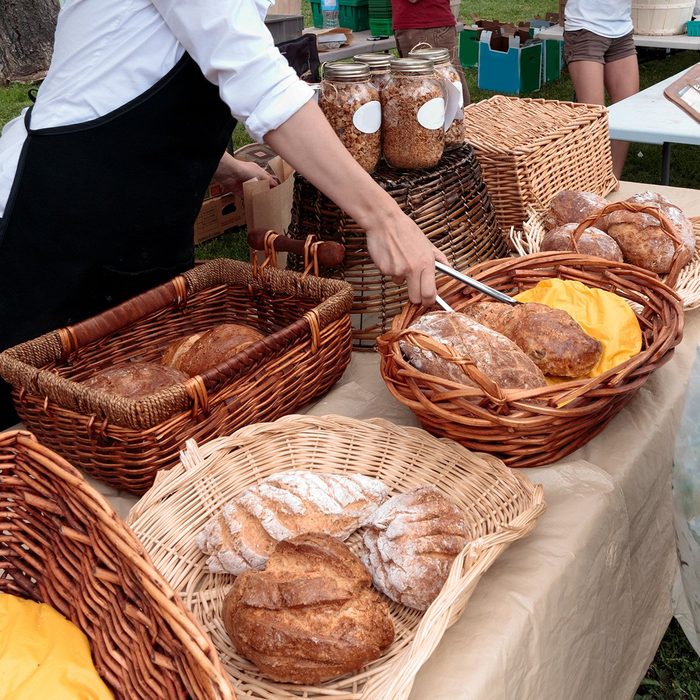
Pay Attention to Vendor Cleanliness
It’s up to individual farmers market coalitions and the vendors themselves to practice proper food safety. Before you buy, observe how the vendor is managing their booth. Does the booth have an overall look of cleanliness and order? Is the food handler using gloves and changing them at appropriate times, like after handling money? Also, look for the use of other sanitary supplies like deli paper, tongs and bags for purchased goods. By the way, these are the benefits of shopping at a farmers’ market vs. the grocery store.
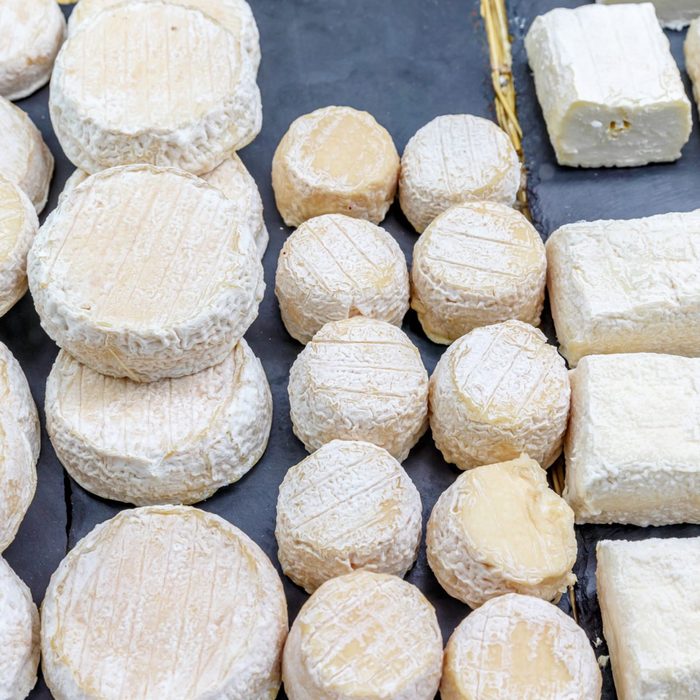
Avoid Raw Milk and Soft Cheese
Drawn to a tasty-looking dairy booth? Be careful. Unless you can confirm it’s been pasteurized, don’t buy raw milk or soft cheese at the farmers’ market. These products can carry dangerous bacteria such as salmonella, E. coli and listeria. (Do you have food poisoning or a stomach bug? Here’s how to tell the difference.)
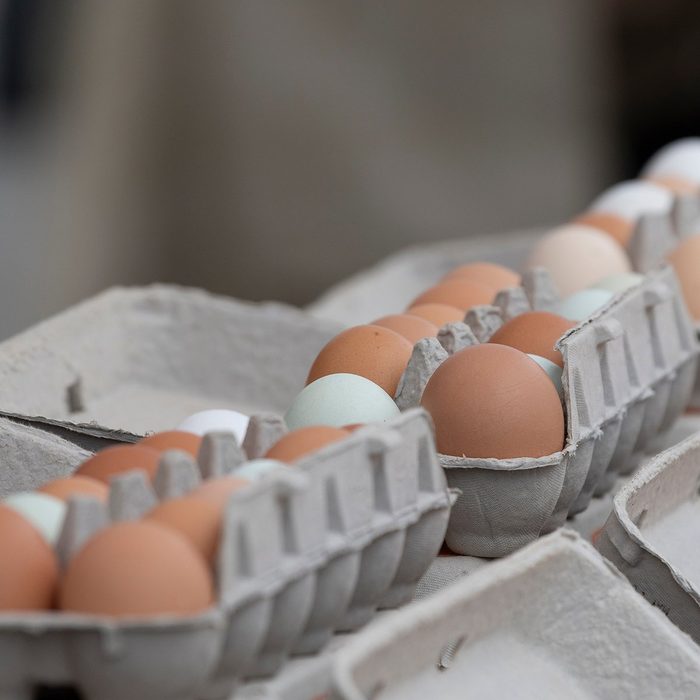
Eggs Should Be Chilled
There’s a big difference in flavour when it comes to farm-fresh eggs versus store-bought. So don’t be afraid to purchase eggs at the farmers market; just make sure the vendor has them properly chilled. According to the Government of Canada, “eggs should be refrigerated as soon as possible in the coldest section of the refrigerator.” (Yes, you’re right, eggs don’t have to be refrigerated in Europe.)
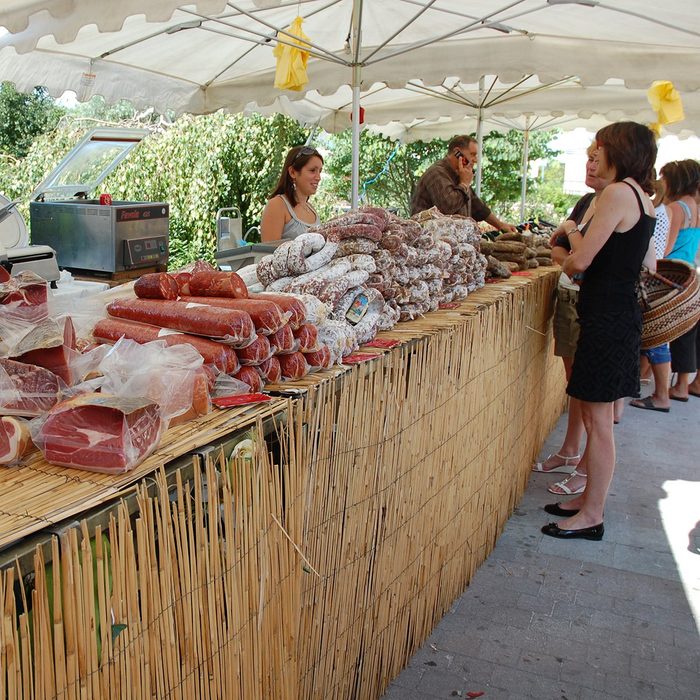
Practice Caution with Meat
It’s especially important to be careful when purchasing meat. Raw meat can carry foodborne pathogens that cause illness. Be sure the vendor is keeping their meat products properly chilled with ice chests and coolers. Food handlers should also be keeping meat separate from other produce or ready-to-eat products to avoid cross-contamination.
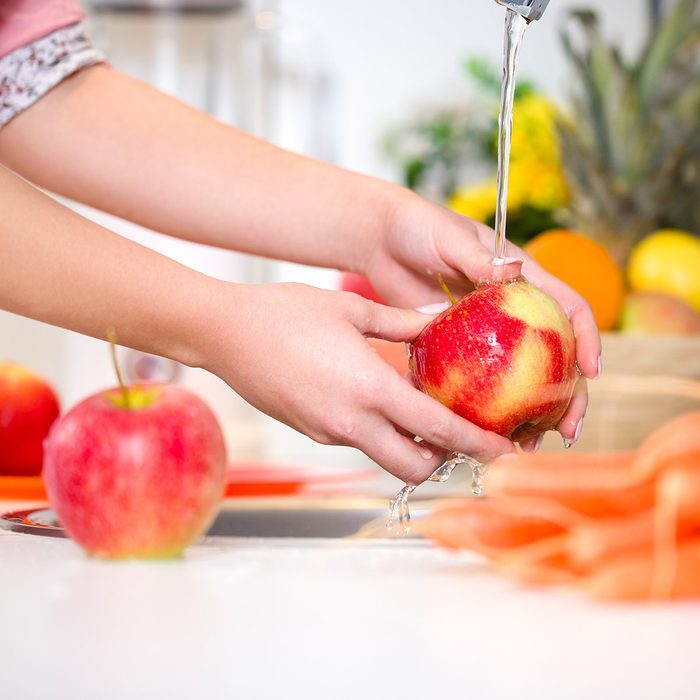
Wash Produce at Home
Although farmers’ market produce is fresher than supermarket produce—and probably grown with fewer pesticides—it still needs to be washed before eating. Wash your hands with warm water and soap. Then rinse fruits and vegetables under running water before eating, cutting or cooking. This is true even if you’re going to discard the skin like with a watermelon or cucumber. Any bacteria on the outside of the fruits and vegetables can be transferred to the inside when you cut or peel them. Here’s how to clean fruits and vegetables.
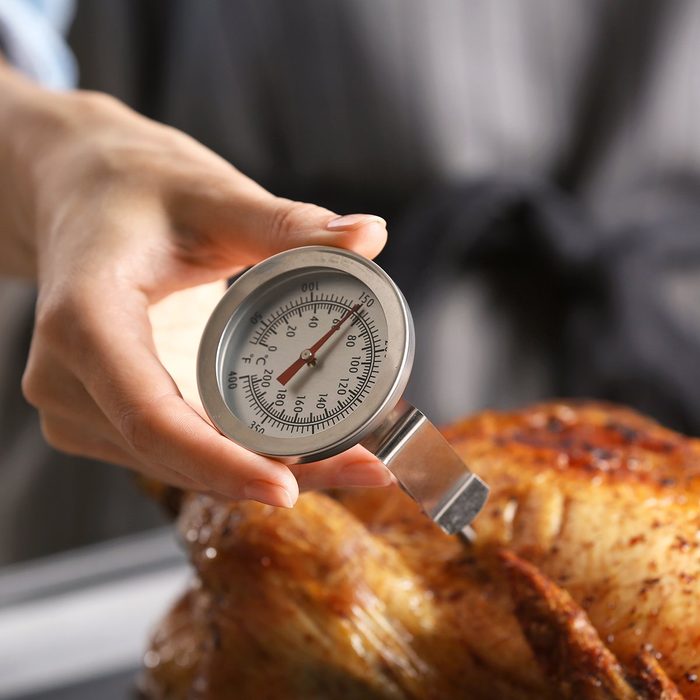
Cook Meat to the Right Temperature
On the off chance that the meat you bring home from the farmers market does contain bacteria, you can kill it by cooking the meat thoroughly. A meat thermometer is an affordable kitchen gadget that will ensure you’re always preparing and consuming meat safely. Steak, pork and other whole cuts of meat should be cooked to 145°F. Chicken should be cooked to 165°F. (Are you making these cooking mistakes that can make your food toxic?)
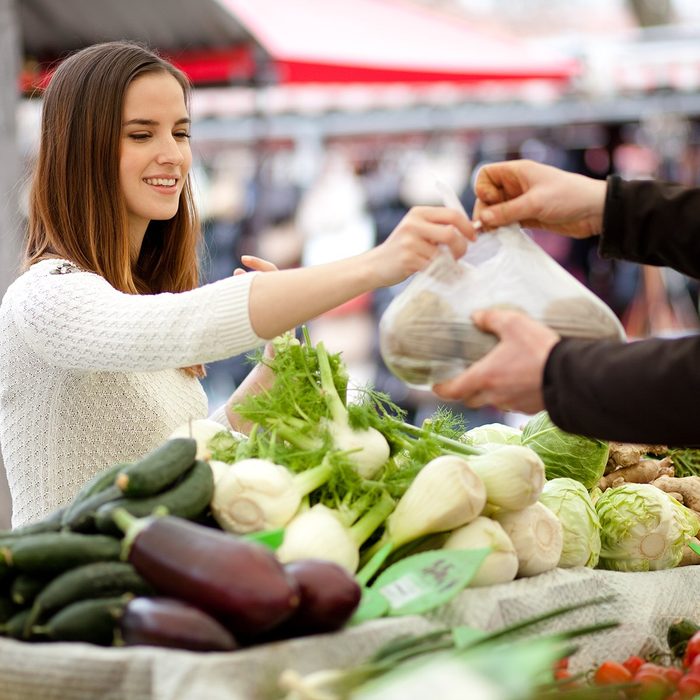
Shop Smart
A few simple farmers’ market shopping habits can help you avoid some food safety problems. Bring an insulated shopping bag to store items that need to be kept cold, and pick up those items toward the end of your shopping trip. Bring a separate bag for raw meat so it doesn’t contaminate any of your other purchases.
And during the summer, it’s especially important to go straight home after you’re done shopping to avoid food spoiling in a hot car.
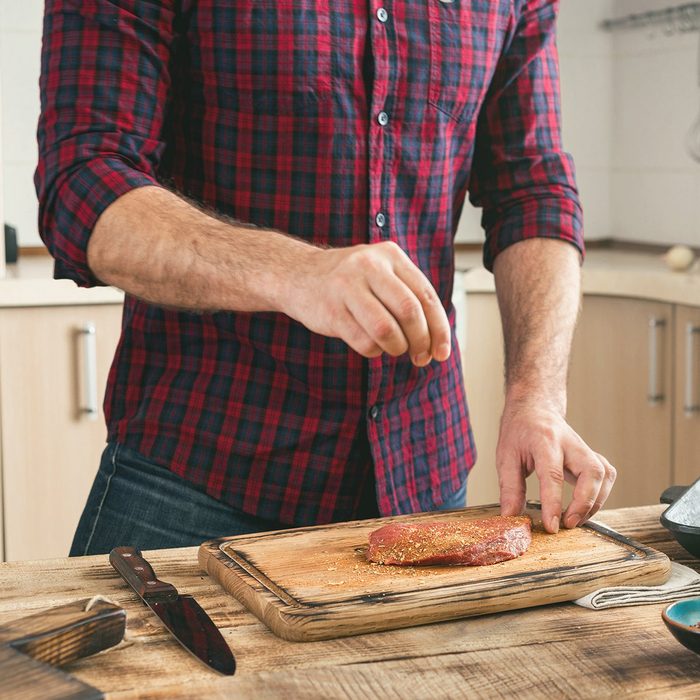
Don’t Wash Meat
To be extra safe with your farmers market food you should just wash everything, right? Wrong. Never wash raw meat or poultry. Washing these items can actually make bacteria spread throughout your kitchen. As you’re rinsing a chicken breast, for example, the juices can splash onto your sink and counter tops and contaminate your food prep area.
Next, check out how to make grocery shopping so much easier.
